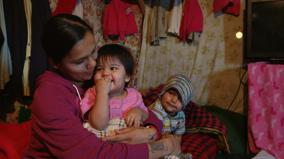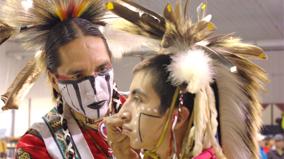Skip to content
Accessibility

New release
Coming
None
Fight
2012
44 min
Leaving soon
This short documentary introduces us to Randy Baleski, a Winnipeg high school teacher and former boxer who has a unique approach to helping students at risk of not graduating: get them in the ring. We watch him work with two Indigenous teens from troubled backgrounds as they slowly come to understand that boxing is more than just a sport… it's a way of life.

This short documentary introduces us to Randy Baleski, a Winnipeg high school teacher and former boxer who has a unique approach to helping students at risk of not graduating: get them in the ring. We watch him work with two Indigenous teens from troubled backgrounds as they slowly come to understand that boxing is more than just a sport… it's a way of life.
-
writerErvin Chartrand
-
directorErvin Chartrand
-
producerDavid ChristensenJoe MacDonald
-
editorCraig Guiboche
-
cinematographerReil MunroCharles KonowalJonathan Bland
-
sound recordistKirby Hammond
-
production assistantRoger Boyer
-
on-lineJoe Owens
-
colour correctionJoe Owens
-
transcriptionSharon Murphy
-
sound designJohn Blerot
-
mixJohn Blerot
-
production coordinatorGinette D'SilvaFaye YonedaMonique Perron
-
production supervisorMark PowerScott Collins
-
marketing managerLeslie StaffordKelly Fox
-
program administratorCyndi ForcandDarin Clausen
-
executive producerDerek MazurDavid Christensen
Ages 13 to 17
School subjects
Before screening the film, ask students to brainstorm metaphors that originated with the sport of boxing; then, with partners or in small groups, discuss how these metaphors can be used to describe everyday situations. After viewing the film, discuss what metaphors might apply to the life stories of Rene Catcheway and Melvin Delorme. Ask students what advice they would give Catcheway and Delorme’s teachers. If they were friends with either of the film’s subjects, what would they want to say to them?

















